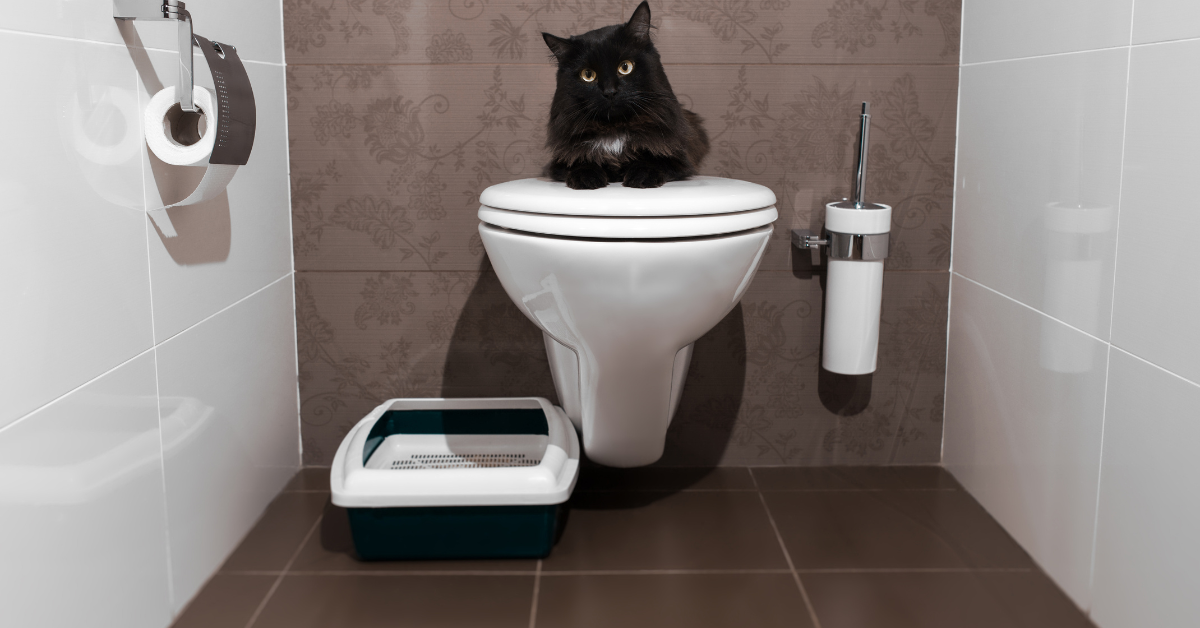Prevent Clogs and Damage: Don't Flush Cat Poop Down Your Toilet - Professional Recommendations
Prevent Clogs and Damage: Don't Flush Cat Poop Down Your Toilet - Professional Recommendations
Blog Article
Just how do you feel on the subject of Can You Flush Cat Poo or Litter Down the Toilet??

Intro
As cat proprietors, it's essential to be mindful of how we dispose of our feline friends' waste. While it might appear hassle-free to flush cat poop down the commode, this method can have harmful consequences for both the setting and human wellness.
Ecological Impact
Flushing feline poop presents hazardous microorganisms and parasites right into the water supply, posing a considerable risk to water ecological communities. These contaminants can adversely affect aquatic life and compromise water high quality.
Health and wellness Risks
Along with ecological worries, purging cat waste can additionally present wellness risks to people. Feline feces might have Toxoplasma gondii, a parasite that can create toxoplasmosis-- a potentially serious ailment, particularly for expectant ladies and individuals with weakened immune systems.
Alternatives to Flushing
The good news is, there are safer and much more responsible methods to dispose of cat poop. Take into consideration the following alternatives:
1. Scoop and Dispose in Trash
One of the most usual technique of getting rid of cat poop is to scoop it into a naturally degradable bag and toss it in the garbage. Make sure to use a committed litter inside story and take care of the waste quickly.
2. Use Biodegradable Litter
Choose eco-friendly feline litter made from products such as corn or wheat. These trashes are eco-friendly and can be securely gotten rid of in the trash.
3. Hide in the Yard
If you have a lawn, consider hiding cat waste in a marked area away from vegetable yards and water sources. Make certain to dig deep enough to stop contamination of groundwater.
4. Set Up a Pet Waste Disposal System
Buy an animal garbage disposal system specifically developed for feline waste. These systems use enzymes to break down the waste, decreasing odor and environmental effect.
Final thought
Liable pet dog ownership extends beyond giving food and shelter-- it likewise involves appropriate waste monitoring. By refraining from flushing feline poop down the commode and opting for alternative disposal approaches, we can decrease our environmental footprint and secure human health and wellness.
Why You Should Never Flush Cat Poop Down the Toilet
A rose by any other name might smell as sweet, but not all poop is created equal. Toilets, and our sewage systems, are designed for human excrement, not animal waste. It might seem like it couldn’t hurt to toss cat feces into the loo, but it’s not a good idea to flush cat poop in the toilet.
First and foremost, assuming your cat uses a litter box, any waste is going to have litter on it. And even the smallest amount of litter can wreak havoc on plumbing.
Over time, small amounts build up, filling up your septic system. Most litter sold today is clumping; it is made from a type of clay that hardens when it gets wet. Ever tried to scrape old clumps from the bottom of a litter box? You know just how cement-hard it can get!
Now imagine just a small clump of that stuck in your pipes. A simple de-clogger like Drano isn’t going to cut it. And that means it’s going to cost you big time to fix it.
Parasitic Contamination
Believe it or not, your healthy kitty may be harboring a nasty parasite. Only cats excrete Toxoplasma in their feces. Yet it rarely causes serious health issues in the cats that are infected. Most people will be fine too if infected. Only pregnant women and people with compromised immune systems are at risk. (If you’ve ever heard how women who are expecting are excused from litter cleaning duty, Toxoplasma is why.)
But other animals may have a problem if infected with the parasite. And human water treatment systems aren’t designed to handle it. As a result, the systems don’t remove the parasite before discharging wastewater into local waterways. Fish, shellfish, and other marine life — otters in particular — are susceptible to toxoplasma. If exposed, most will end up with brain damage and many will die.
Depending on the species of fish, they may end up on someone’s fish hook and, ultimately on someone’s dinner plate. If that someone has a chronic illness, they’re at risk.
Skip the Toilet Training
We know there are folks out there who like to toilet train their cats. And we give them props, it takes a lot of work. But thanks to the toxoplasma, it’s not a good idea.

I hope you liked our piece about Don’t flush cat feces down the toilet. Thank you for taking a few minutes to read through our blog. Are you aware of another person who is excited by the niche? Feel free to promote it. Thanks for your time. Visit again soon.
Visit Link Report this page